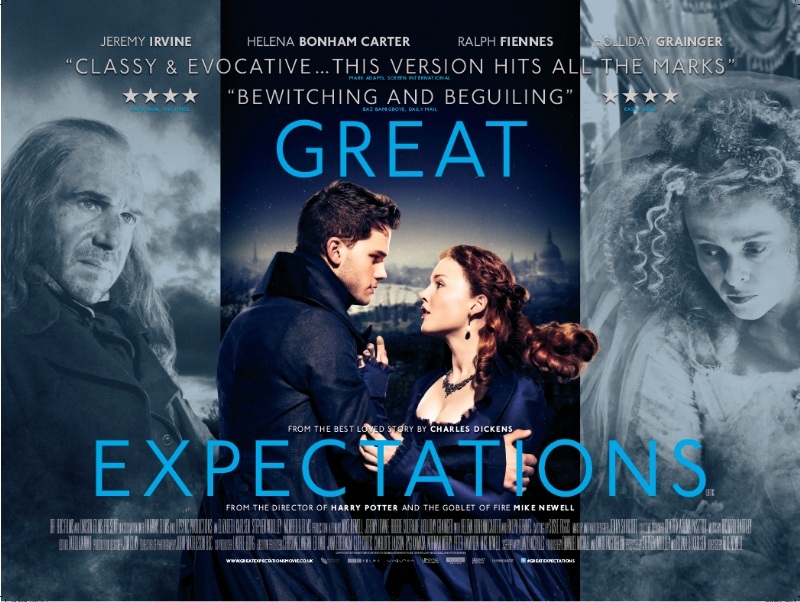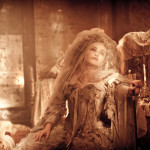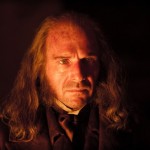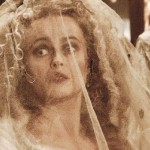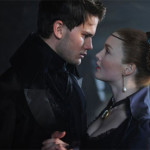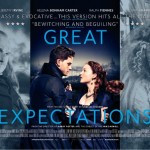If Dickens has become the new Shakespeare, then Great Expectations must be the new Hamlet, albeit with fewer deaths. By this I mean the book has become thoroughly ubiquitous, what with umpteen movie, TV and stage adaptations (I saw one such stage adaptation in Southwold some years ago.)
Some are true to the origins of the Dickens novel and others relocated and updated in ways Dickens may or may not have approved. Mostly they are a feat of editing, taking the rich source material and shaping it into two coherent hours of entertainment, but some corners are inevitably cut to ratchet up the tension and transform a period drama into thrilling entertainment for audiences brought up on Arnie, Sly, Bruce, Chuck and other all-action heroes. This one makes a point of saying it is “based on” the Dickens novel, of which more anon.
But there is another weight of expectation in play here. Just as movie Hamlets are still judged against the Olivier yardstick, every Great Expectations must be seen in the context of David Lean‘s masterful 1946 production. This is far from being the only valid interpretation of the work, but each subsequent production should add weight to the genre, much as we now expect new Hamlets to come up with innovations and characteristics rather than repeating the same meat-and-two-veg. This one, according to the blurbs taken (often out of context) on the movie’s poster declares this GE to be “classy and evocative” and/or “bewitching and beguiling” (Daily Mail.) Hmmmm…. that certainly doesn’t tell the whole story.
Initial signs are promising. The marshes of Kent translate into a dull, bleak landscape, washed of colour and atmospheric. Cameras intrude from many angles, more akin to a pop promo video. Some are static, while others apply the fashionable hand-held mode, the sort that makes many viewers feel seasick – which may not be altogether a bad thing. London too translates as a place of filth and squalor worthy of Grand Guignol (including Miss H’s flaming death scene, burned to a crisp.) Compared to the misty marshes and sanitised interiors of Lean, this is more authentically Dickensian, though whether it detracts from the plot and script I will leave you to decide. Personally, I like my Dickens to be drenched and dirty, not look like a movie set.
Much is made of an A-list cast, though the best performers are not necessarily those you expect. Full marks to Robbie Coltrane for endowing Mr Jaggers with a dry and urbane humanity beneath his outward cloak of gravitas. In many ways he is the dynamo behind the plot, more so than Ralph Fiennes‘s otherwise proud and impressive Magwitch. Everywhere you look there are solid performers who slightly undersell themselves, but then Mike Newell‘s muted direction (he of Four Weddings & a Funeral and Harry Potter & the Goblet of Fire fame) appears to be deliberately underplaying the whole melodrama.
But just as you watch the Rivals to enjoy the delights of Mrs Malaprop‘s mangling of the English language, no Great Expectations can be complete without the sour-faced scheming of Miss Havisham, and rarely can there have been a more eagerly anticipated Miss H than our own HBC. But Helena Bonham Carter‘s Miss Havisham is certainly unorthodox. Shot in sepia, she snips and simpers coyly, preferring to indulge in whimsical girlish giggles rather than the forlorn bitterness or Machiavellian waspishness prevalent in previous incumbents. She appears too young for the role, such that even when there are the make-up department’s finest bags under her eyes, her neckline appears unblemished.
Worse, there is rarely any bite, any substance to this Havisham, which in view of HBC’s fine recent record is disappointing. I’d have liked the audience to be given the full force of her bitterness and vengeance. Granted the saying goes that revenge is a dish best eaten cold, but I think it is long since dead and buried here. In my view Miss H should have at least private moments of vituperative wallowing and to let off steam at least at one point in the movie, since the format denies us the right to read her thoughts.
Holliday Grainger (is Holliday a viable given name?) plays Estella, the cruel instrument of Miss Haversham’s revenge, rather more like a china doll, to be admired for her beauty, than despised for twisting the knife into Pip’s heart by the knowing pursuit of Bentley Drummel. Hollywood studio execs would call her the “love interest”, though the character is more complex and subtle that she appears on this showing. Interesting then that the chosen ending (Dickens wrote two) is closer to his second, where some ambiguity is left over whether Estella will ever allow the scales to fall from her eyes and allow she and Pip to declare their mutual love and eventually to marry.
Movie makers are not generally known for their love of ambiguity (Usual Suspects notwithstanding), a quality that sometimes baffles American audiences and runs contrary to their instinctive desire to tie all loose ends and tack on a happy ending. Yet in the right hands ambiguity can be incredibly powerful and certainly evocative, relying as it does on the intelligence of the audience to work out from clues given what should happen next, and what the impact of that ending would be, in preference to other cup-de-sacs the characters could head down.
But ambiguity only works if you truly care about the characters. From the audience perspective, do we care enough about these characters to want to know the destination of their slow-burn passions? Despite Pip’s declaration of love they seem somewhat remote and distant from one another. To me it did not feel credible, though that again may be more the fault of Newell than Jeremy Irvine, whose Pip squeaks but emotes unconvincingly.
The upside of this 128 minutes is attention to detail and craft that has gone into creating it. The downside is that it’s a slightly dour affair, filleted of much of the essential Dickensian humour and social satire, focusing instead on the harsh realities. It sticks fairly faithfully to the original plot, subject to the usual restrictions of the two hour format, but somehow fails to translate and communicate the spirit of Dickens, his very essence. A good effort, but lacking the elegance and vision of a Lean. Maybe the TV mini-series version is a more appropriate format, given more time to get inside the heads of the characters, all the better to understand their motivations.
But does it stand up to its chosen epithets? “Classy and evocative” are arguably demonstrable; “bewitching and beguiling?” Newell certainly aspires to those qualities, but falls at the last hurdle by not giving his characters the space and time to be themselves.

